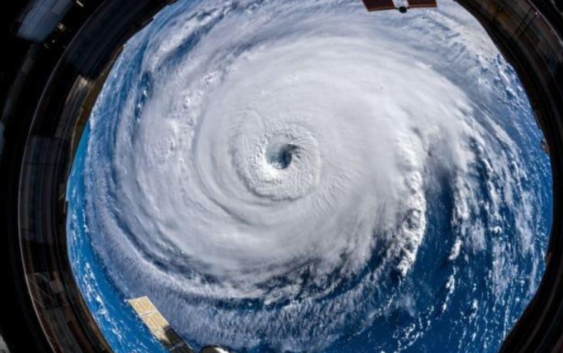- Western NC neighborhood still reeling from Hurricane Helene flood damage
- Ashe County Schools reopen after Hurricane Helene hit area over a month ago
- Ashe County Schools reopen Tuesday after Hurricane Helene hit area
- Carolina Hurricanes foundation donates $50,000 to rebuild Asheville hockey rink
- Stress, shelter, and safety: Hurricane Helene's effect on domestic violence victims in NC
Which two hurricane names are likely to be retired this week?

The names live in legend — tropical cyclones that devastate and erase — but most are never repeated and this week at least two are likely to be retired.
The World Meteorological Organization’s hurricane committee for the region that covers the Atlantic basin is meeting in Curaçao through Friday with an agenda that annually includes a discussion on what tropical cyclone names should never return to the rotating six-year list of monikers.
Last year, four names from the 2017 hurricane season — Harvey, Irma, Maria and Nate — were retired.
This year, no one is in doubt that Hurricane Florence, which hit the southeastern coast of North Carolina on Sept. 14, and Hurricane Michael, which made landfall Oct. 10 as a strong Category 4 storm with 155-mph winds, will be removed.
“Given both the historical rarity, intensity and impact, it’s likely the name Michael will be retired from future use for Atlantic when a committee of the World Meteorological Organization convenes in spring 2019,” wrote Jonathan Erdman, a meteorologist for Weather.com, an IBM company, the day of landfall. “This would be the third straight “M” hurricane to be retired, following Maria in 2017 and Matthew in 2016.”
Tropical cyclone names are selected by the WMO and are usually common names associated with the ethnicity of the basin affected by the storms. The names are on a six-year rotating list, with the 2019 list a repeat of 2013.
“For example, in the Atlantic basin, the majority of storms have English names, but there are also a number of Hispanic-origin names as well as a few French names,” said National Hurricane Center spokesman Dennis Feltgen during an interview about why 2015′s Hurricane Henri wasn’t Hurricane Henry. “For the eastern North Pacific basin, the majority of names are of Hispanic origin, as the impacted countries are Mexico, Guatemala and other nations of Central America.”
Hurricanes began getting names in 1950 based on the phonetic alphabet. That was abandoned in 1953 when hurricanes started being named after women only. In 1978, men’s names were added.
Eighty-six names have been retired from the Atlantic basin list since 1954.
There will never be another Hurricane Andrew, after the devastating 1992 Category 5 storm.
The 2004 and 2005 seasons saw multiple names retired, including, Charley, Frances, Ivan, Jeanne, Dennis, Katrina, Rita, Stan and Wilma.
Hurricane Joaquin is off the list after the 2015 storm killed 33 people on the cargo ship El Faro when it sank near Crooked Island in the Bahamas. Hurricanes Matthew and Otto were retired after the 2016 season, replaced with Martin and Owen.
Feltgen said if any hurricane names are retired this week, it will be quickly publicized.
While the National Hurricane Center has yet to release its report on Hurricane Michael, a paper outlining its devastation presented this week says that at least 20 deaths were directly caused by the storms winds, tides and rains with 11 in Florida, 5 in Virginia, 3 in North Carolina and 1 in Georgia. In Florida, six peple drowned in storm surge in the Mexico Beach and Panama City area, while four people died because of falling trees, according to the paper.